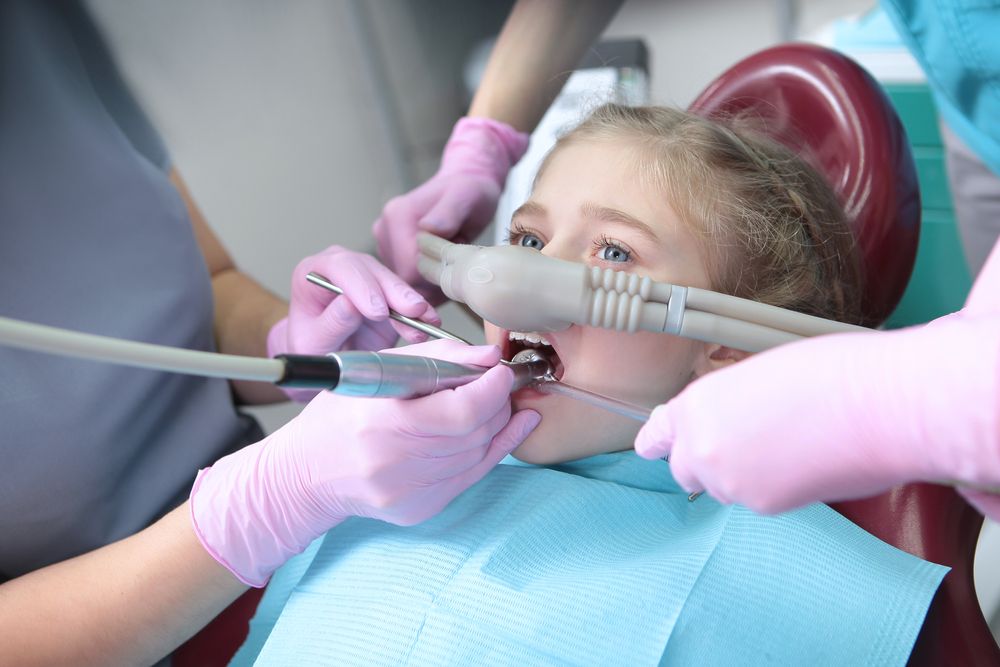As parents, we want to ensure our children grow healthy and happy. Oral health is an essential aspect of their overall well-being. At Dentistry for Children and Young Adults in San Jose, CA, Dr. Shawn Taheri, DDS, specializes in pediatric dentistry, including care for children with special needs. This comprehensive guide covers the most common dental problems in children and offers practical tips on preventing them.
Dental Caries (Cavities)
What Are Cavities?
Cavities are one of the most prevalent dental issues in children. They occur when bacteria in the mouth produce acids that erode the tooth enamel. This leads to the formation of holes or cavities in the teeth, which can cause pain, infection, and even tooth loss if left untreated.
How to Prevent Cavities
- Regular Brushing and Flossing: Ensure that children brush their teeth twice a day with fluoride toothpaste and floss daily to remove food particles and plaque.
- Healthy Diet: Limit sugary snacks and drinks. Encourage a balanced diet rich in fruits, vegetables, and whole grains.
- Regular Dental Check-Ups: Schedule dental visits every six months for professional cleanings and early detection of potential problems.
- Fluoride Treatments and Sealants: Fluoride helps strengthen tooth enamel, while sealants provide a protective barrier on the chewing surfaces of back teeth.
Gum Disease (Gingivitis)
What is Gum Disease?
Gingivitis is an inflammation of the gums caused by plaque buildup. If not addressed, it can progress to more severe forms of gum disease, leading to tooth loss.
How to Prevent Gum Disease
- Good Oral Hygiene: Teach children to brush their teeth thoroughly, paying special attention to the gum line, and to floss regularly.
- Regular Dental Visits: Routine check-ups allow the dentist to monitor gum health and provide professional cleanings to remove plaque and tartar.
- Healthy Eating Habits: A diet high in vitamins and minerals supports gum health. Encourage children to eat fresh fruits and vegetables.
Tooth Sensitivity
What is Tooth Sensitivity?
Tooth sensitivity in children can result from a variety of factors, including cavities, enamel erosion, and gum recession. It causes discomfort when consuming hot, cold, sweet, or acidic foods and drinks.
How to Prevent Tooth Sensitivity
- Use of Fluoride Toothpaste: Fluoride helps to strengthen enamel and reduce sensitivity.
- Avoiding Acidic Foods: Limit the intake of acidic foods and beverages that can erode enamel.
- Proper Brushing Techniques: Teach children to brush gently with a soft-bristled toothbrush to avoid enamel wear and gum recession.
Tooth Eruption Problems
What Are Tooth Eruption Problems?
Tooth eruption problems occur when teeth emerge in the wrong position or fail to emerge at all. This can lead to misalignment, overcrowding, or impacted teeth.
How to Prevent Tooth Eruption Problems
- Regular Dental Check-Ups: Early detection through regular visits to the dentist can help monitor the development and positioning of teeth.
- Orthodontic Evaluations: Consider an orthodontic evaluation by the age of seven to identify and address any potential alignment issues early.
Dental Trauma
What is Dental Trauma?
Children are active and accidents happen, leading to dental trauma such as chipped, broken, or knocked-out teeth. Prompt attention is crucial to address these injuries effectively.
How to Prevent Dental Trauma
- Mouthguards: Ensure children wear mouthguards during sports and physical activities.
- Safety Measures: Teach children about safety and the importance of protecting their teeth during play.
- Emergency Preparedness: Know what to do in case of a dental emergency, such as how to handle a knocked-out tooth until you can get to the dentist.
Thumb Sucking and Pacifier Use
How Do These Habits Affect Teeth?
Prolonged thumb sucking and pacifier use can lead to misalignment of teeth and jaw problems. These habits can alter the mouth’s shape and affect permanent teeth’ growth.
How to Prevent Issues from Thumb Sucking and Pacifier Use
- Encourage Alternatives: Provide other forms of comfort and security to reduce reliance on thumb sucking and pacifiers.
- Positive Reinforcement: Use positive reinforcement to help children break the habit.
- Consult with a Dentist: If the habit persists beyond the age of three, consult with a dentist for strategies to discourage it.
Bruxism (Teeth Grinding)
What is Bruxism?
Bruxism is the involuntary grinding or clenching of teeth, often occurring during sleep. It can lead to tooth wear, jaw pain, and other dental issues.
How to Prevent Bruxism
- Regular Dental Check-Ups: Routine visits to the dentist can help monitor and manage bruxism.
- Stress Management: Identify and address any underlying stress or anxiety that may contribute to teeth grinding.
- Mouthguards: Consider using a nightguard to protect teeth during sleep.
The Importance of Early Dental Care
Starting dental care early in a child’s life sets the foundation for a lifetime of healthy teeth and gums. Regular dental visits from an early age allow the dentist to monitor development and address any issues promptly. It also helps children become comfortable with the dental environment, reducing anxiety in future visits.
Tips for Parents to Maintain Children’s Oral Health
Parents play a crucial role in their children’s oral health. Here are some practical tips to ensure your child maintains a healthy smile:
- Supervise Brushing and Flossing: Until children are around eight years old, they need supervision to ensure they are brushing and flossing effectively.
- Lead by Example: Demonstrate good oral hygiene practices. Brush and floss together as a family activity.
- Limit Sugary Snacks and Drinks: Encourage healthy eating habits by offering nutritious snacks and limiting sugary treats and beverages.
- Make Dental Visits a Positive Experience: Choose a pediatric dentist like Dr. Shawn Taheri, who understands how to make dental visits fun and stress-free for children.
Dentistry for Children with Special Needs
Children with special needs require tailored dental care to address their unique challenges. Dr. Shawn Taheri specializes in providing compassionate and individualized care for these children, ensuring they receive the best possible dental treatment.
Key Considerations for Special Needs Dentistry
- Personalized Care Plans: Each child’s specific needs are assessed to create a customized care plan.
- Comfort and Support: The dental office environment is designed to support and accommodate children with special needs.
- Specialized Techniques: Techniques such as desensitization, sedation, and specialized equipment ensure that dental procedures are safe and comfortable.
Creating a Foundation for Lifelong Oral Health
By understanding common dental problems in children and taking proactive steps to prevent them, parents can help their children develop healthy habits that last a lifetime. Regular dental visits, good oral hygiene practices, and a healthy diet are essential to optimal oral health.
Dr. Shawn Taheri and his team are dedicated to providing exceptional pediatric dental care at Dentistry for Children and Young Adults in San Jose, CA. Their comprehensive approach ensures that all children, including those with special needs, receive the highest quality care in a supportive and understanding environment.
Sources:





